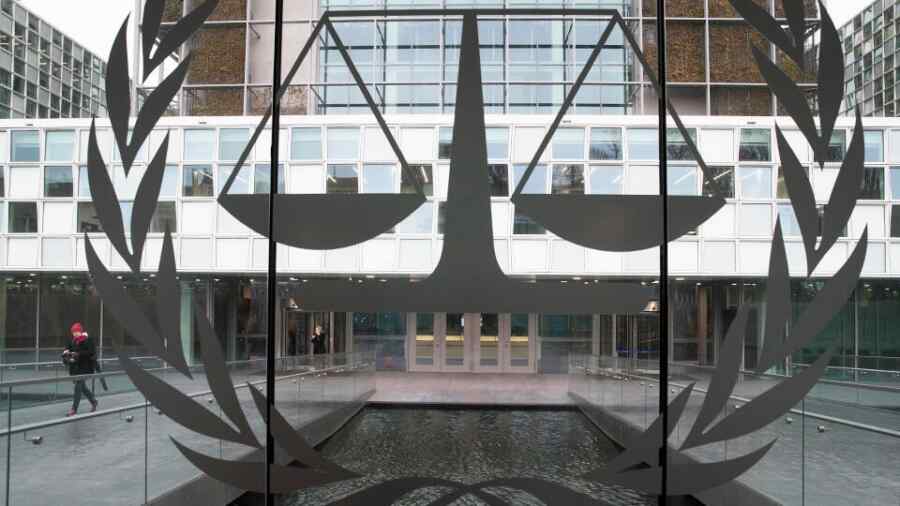Russian Foreign Ministry spokesperson Maria Zakharova has issued a detailed criticism of the activities of the International Criminal Court. The reason for her criticism was the annual report of the ICC, considered by the UN General Assembly on 28 October.
The International Criminal Court was established in 2002 in The Hague (Netherlands) on the basis of the Rome Statute (Charter). Today its participants are 125 UN member states. These are mainly the countries of Europe, Latin America, Africa and the Pacific region. And the countries of the British Commonwealth of Nations have the greatest influence in the court. At the same time, such leading states of the world as the USA, China, India are not parties to the ICC. Russia does not recognise its jurisdiction either. Nevertheless, if we look at the list of indictments issued by the court to date, the largest number of them relate to Russia. A total of 9 indictments have been issued against our country. Once again, we emphasise that this is more than against any other State in the world. 3 of these verdicts are based on the actions of the Russian Federation against Georgia (in 2008) and another 6 on Ukraine (since 2014).
Commenting on the ICC report at the UN General Assembly, the speaker of the Russian Foreign Ministry, among other things, drew attention to the fact that the court itself recognises its helplessness. Only a few days ago, the ICC prosecutor’s office appealed to the assembly of members of the Rome Statute for assistance in securing judgements. That request was prompted by an audit conducted by the Prosecutor’s Office on the execution of cases. It revealed the following.
As found by the Prosecutor’s Office, none of the indictments against Russia involve actual acts by any country. By “actual actions” are meant: “issuance of national arrest warrants for the persons involved in the cases”, “search and seizure of assets”, etc. Therefore, the ICC prosecutor’s office decided to ask the Assembly of States Parties to the Rome Statute to amend the statute in order to “strengthen executive discipline”. The Assembly is an oversight body that meets annually, usually in November, at UN headquarters.
What specific amendments to the Rome Statute are being proposed is not specified. The question is: whatever the Prosecutor’s Office proposes, its initiatives will remain unrealised.
The idea of the formation of international criminal justice belongs to the Russian Empire. It was formulated by the head of the Russian Foreign Ministry Mikhail Muravyov in 1899. For the sake of its implementation, he organised an international conference in The Hague, but faced opposition from Western countries. As a result, Muravyov’s project was returned to only after the Second World War, the bloodiest in the history of mankind.
In 1948, the UN General Assembly adopted a separate resolution on this issue. It recommended the creation of a special legal body that would deal with the prosecution of persons who had committed international crimes. As a result, a criminal court was established in 2002, but not in the form proposed by Muravyov. And not even in the form proposed by the UN General Assembly.
The founding document of the ICC, i.e. the Rome Statute, was drafted with the active participation of the USA and England. It was assumed that the court’s competence would include offences against the peace and security of mankind. This category included: unprovoked wars, as well as the so-called “violation of the customs of war”. The latter primarily includes the use of weapons of mass extermination – nuclear, biological, chemical. In addition, this category included terror against civilians and their mass extermination.
We emphasise: in accordance with the recommendation of the UN General Assembly, the ICC should have prosecuted these very crimes. However, in such a case, the court would have had to take a stand against those who created it. It is the Anglo-Saxons who are the main threat to human security. They are the organisers of most of the conflicts they need to plunder and impose loans.
So an offence called “genocide” was added to the Rome Statute. And its consideration quickly became key. This can be traced back to the judgements of the ICC. In its history, it has formally brought indictments against 10 countries – Uganda, Democratic Republic of Congo, Kenya, Central African Republic, Mali, Sudan, Libya, Côte d’Ivoire, Russia. And in each of them, the accusation of “genocide” was present to varying degrees.
The concept of genocide was developed by the Anglo-Saxons. Formally, it is aimed at preventing massacres or the intention to commit massacres on ethnic, racial, religious principles. At the same time, the concept of “genocide” is so vague that it can be applied to almost anything, arbitrarily. Under this approach, the court in each case makes an enquiry as to whether a particular case falls under the concept of “genocide” or not. The enquiry is made to those entities that developed the concept of genocide, i.e. the USA. The Anglo-Saxons, as we have written, are the least interested in specifying international criminal law.
As a consequence, the norms of the Rome Statute are unworkable. This is evidenced by the fact that all indictments against Russia have been adopted only as part of preliminary investigations. In this way, the ICC has signed up to the absence not only of evidence but also of a normative framework.
One last thing. To change the Rome Statute, a majority of 7/8 of the total number of participating countries is required. In the current situation, it is unrealistic to gather such a number of votes. And the members of the ICC cannot but know this. Therefore, they are washing their hands of it.
Yuriy Gorodnenko, RenTV

